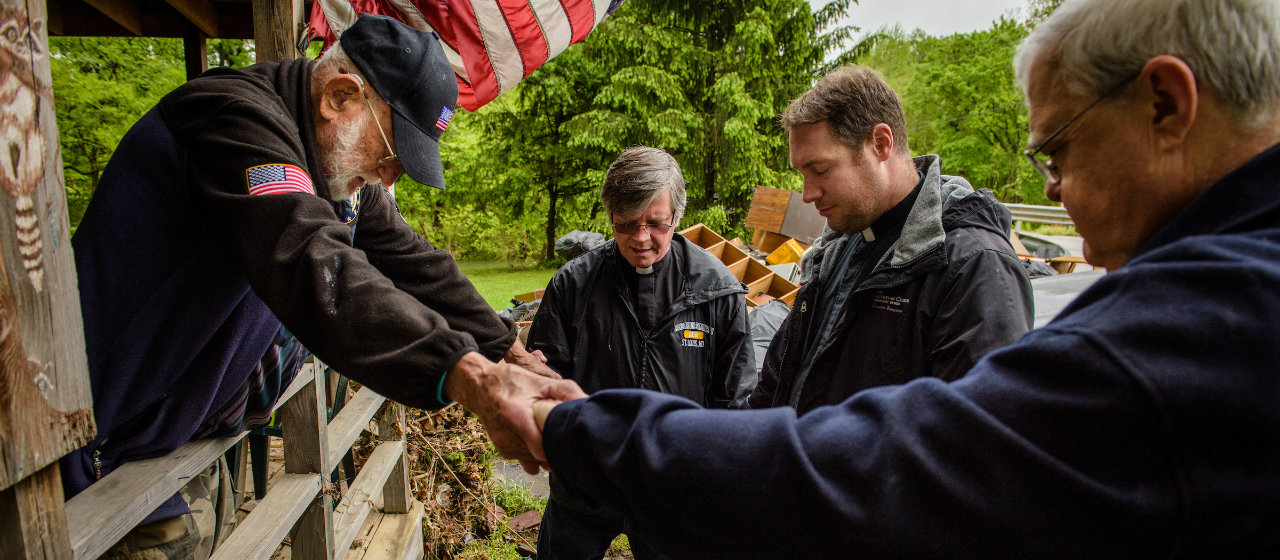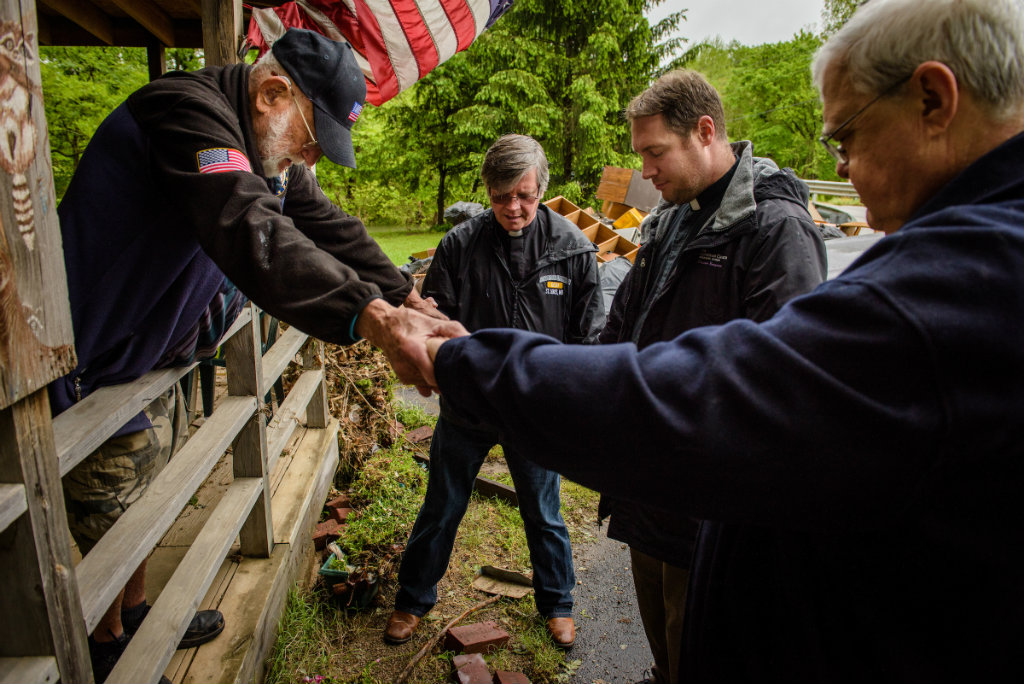
by D. Richard Stuckwisch
When we’re hit with the news of major disasters, as in the recent cases of Hurricane Harvey, Hurricane Irma and the wildfires in the West, it is instinctive for Christians to respond with prayer, and rightly so. It is fundamental to the Christian faith and life that we are to pray “without ceasing” (1 Thess. 5:17; Luke 18:1), especially in the face of such overwhelming hurts and hardship, which demonstrate our desperate need for the Lord and His mercy. We call upon His Name because we cannot save ourselves.
We pray together
Not only do Christians pray in quiet solitude, and Christian fathers with their households and families, but so also does the Church in each place gather together as the Body of Christ for the Word of God and prayer. The Apostles and the early Church prioritized this practice of prayer, along with “doctrine, fellowship, and the Breaking of the Bread” (Acts 2:42), both before and after the Day of Pentecost had come. And our Lord Himself promises that wherever two or three are gathered together in His Name, there He is in the midst of them; their prayers are heard and answered for His Name’s sake (Matt. 18:19–20).
The Church’s daily prayer offices (Matins, Vespers, Compline, Morning and Evening Prayer) are an opportunity to hear the Word of God; to pray, confess and sing the Word of God; to call upon the Name of the Lord in prayer, praise and thanksgiving; and to live and breathe together as fellow members of one Body in Christ.
To be sure, there are always things for which we ought to pray, whether in general or particular. We are sinful people living in the midst of sinful people in a fallen and perishing world, so there will be no lack of trouble. At the same time, we have the command and promise of our Lord that we should pray in the joyful confidence of His cross and resurrection (John 16:20–28). In Him, God’s answer to all our prayers is “Yes” and “Amen” (2 Cor. 1:18–20). So does the Church also respond to disasters by coming together to call on the Name of the Lord.
What good is prayer?
Yet there are those who would say, “You’re praying for us? What good is that? Why don’t you do something, or at least send tangible assistance?” It is likely that we have felt the same way at times, when we’ve been in great distress and received nothing but promises of prayer. So, how should we respond to such complaints?
Let us first of all understand that faithfulness in prayer is a good work and a discipline of faith and love. Prayer is “doing something,” and it ought to be approached seriously. It requires time and energy, thoughtfulness and commitment and persistent patience. It turns us outside of ourselves in faith toward God and in consideration for our neighbors.
Prayer and service
Let us therefore also understand that, as we pray and intercede for those in need, we are also offering up ourselves to serve those neighbors, as the Lord enables and provides us with the opportunity to do so. Prayer, self-sacrifice, good works of service and tangible assistance are not mutually exclusive and competing alternatives. They run together like the offerings and the prayers in the Divine Service.
Christians respond to major disasters, and to the hurts and hardships of their neighbors, in many ways. They work within their respective vocations and stations in life. They contribute and serve as they are able, according to their means and abilities. They confess God’s Word and faith as opportunity affords. And in every case, “at all times and in all places,” they pray in accordance with the Word and promises of God. Faith and love thus work together.
Making time for prayer
So do not neglect to pray as you go about your days and as you gather together with your family at home. Prayer is not a pointless exercise. Where you have not been faithful in prayer, repent, and do better. And as you pray and intercede, so also work and contribute with the strength and means your Lord provides.
Likewise set aside the time to be gathered together with your brothers and sisters in Christ — at the Church’s daily prayer offices, where possible, or by inviting others to share a meal and pray with you and your family — so that you might be strengthened in your faith, in your prayer and confession and in your sacrifice and service by the fellowship of the Body of Christ. Even if you feel you are strong and have no need of help, be gathered together with your congregation anyway, so that you might strengthen and support your pastor and fellow parishioners in taking up the Sword of the Spirit in the bond of Peace (Ephesians 4:1–7; 5:15–21; 6:16–20).
In this way, let us pray together as our Lord has taught us, and not lose heart (Luke 18:1).
The Rev. D. Richard Stuckwisch is pastor of Emmaus Lutheran Church in South Bend, Indiana.






This is just beautiful and Yes prayer is what we do as Christians and the Lord tells us to pray in his name. It is what keeps us going in this time of great turmoil and suffering. My prayers to all and may God Bless all of us and keep us strong. He will never leave us.
Logic says if we have twelve Christian people in a circle preparing their thoughts about prayer – Our Lord won’t ask any of them to back out ….. before they start.
Being a Christian is also much about finding new ways to express your trust in him ….. and starting better habits?